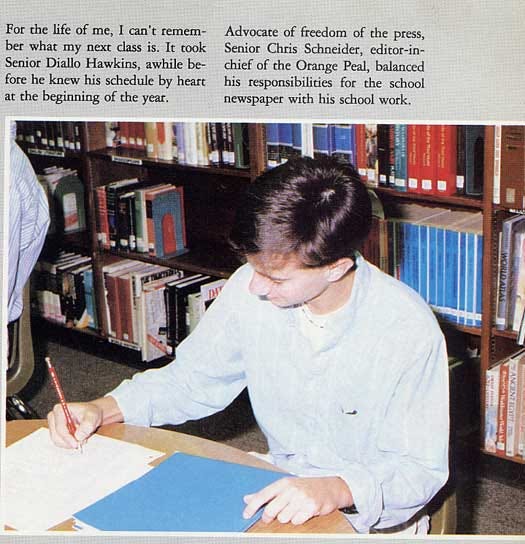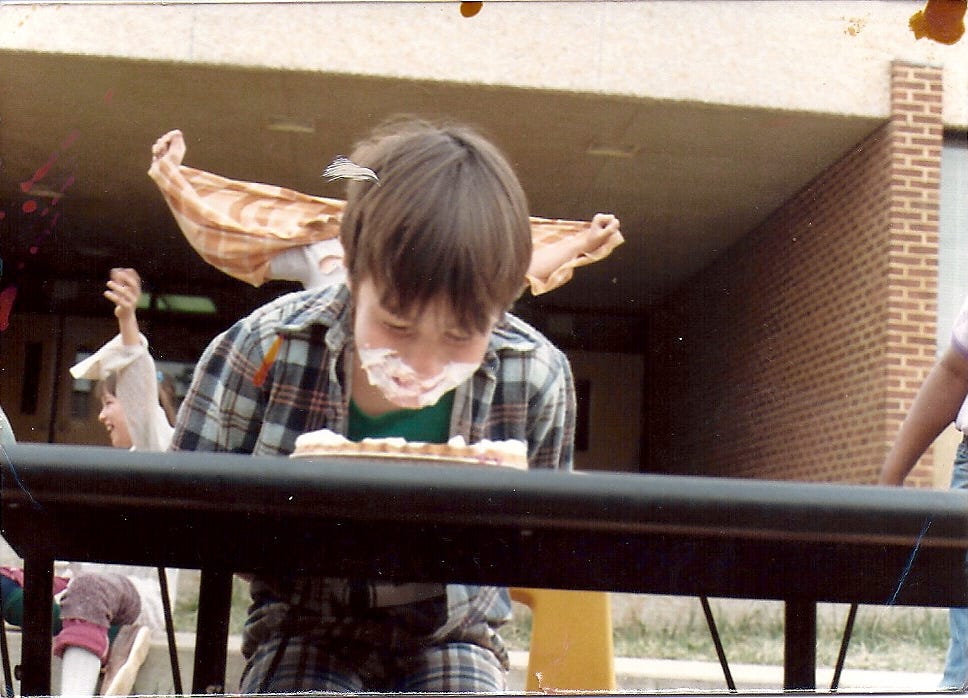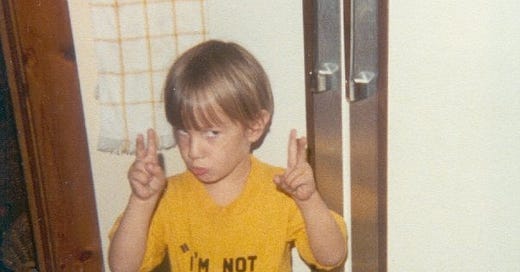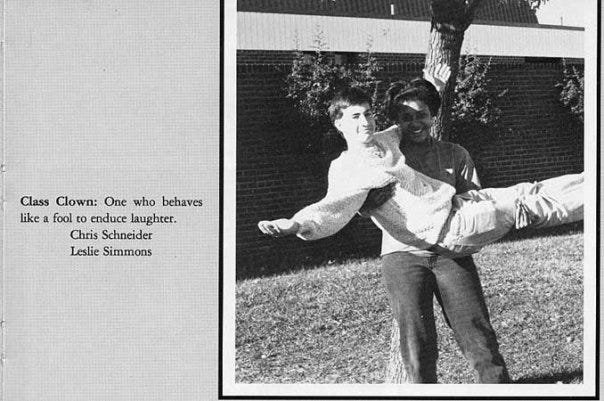Being a half-century old man is a ridiculous thing. We embarrass our children simply by being too close to them in public. We use Gen-Z slang like “my rizz is mid” and young people roll their eyes at us. We have long since retired from being attractive, so we venture into public wearing t-shirts from our 1994 fraternity fun-runs.
But here is the thing: we know we are embarrassing. We just don’t care.
At fifty, we no longer have anyone left to impress. At this point, we are what we are. There is no Hollywood career ahead of us, as if Stephen Spielberg is going to spot us in our socks and flip-flops at Costco and ask us to be the lead in his next war movie. A big publishing house is not showing up at our front door with an oversized check asking us to write our memoirs. The only way we are ever going to see our abs again is on an x-ray.
I know all this despite just turning 50 today. And if I have already settled into the final third of my life this comfortably, just imagine what I’m going to be like for the remainder of time until I die.
I haven’t really thought about my age in terms of numbers before. I mean, how much older am I really today at 50 than I was yesterday at 49? Every day I get a small percentage less attractive and tolerable, so if you want to enjoy my company, better do it now.
(A brief sidebar: A few weeks ago, I read a Wall Street Journal article about how male celebrities like Paul Rudd remain looking young. I mean, who doesn’t get their beauty tips from the nation’s premier financial newspaper?
Given my advancing age (I am now four years younger than the notoriously youthful Rudd), I thought maybe I should give some skin care beyond a bar of soap a shot.
So I bought this Vitamin C serum online, and decided to take it on a test run while at the South by Southwest festival in Austin, Texas. At one point, I was watching a show by sensitive Irish singer-songwriter Soak, who was belting out some heartbreaking tunes. But then, I started to feel some stinging in my eyes - evidently the serum was too close to my eyeballs and causing massive irritation. Water started pouring from my eyes as if I was bawling, which had people looking at me strangely, as if I was totally overcome with emotion over the show we were seeing.
At some point, a guy walked up behind me, put his hand on my back, and said, “It’s going to be alright, man.”
DAMN YOU, PAUL RUDD! *Shakes Fist*)
Anyway, I guess while I am still a “young” old person, I thought I should at least offer up some of what I have learned in my five decades. Growing up, I frequently read George F. Will, and every birthday he had ending in a zero, he would write an update of things he had learned in the past decade.
For example, when he turned fifty in 1991, he wrote an impassioned column imploring people not to use answering machines, because they provided too much distraction in our everyday lives. We are all lucky he didn’t have a brain hemorrhage a few years later when the internet hit the scene and permanently derailed everyone’s attention span.
What was I talking about?
Oh yeah. Life tips.
If there is any single important thing I have learned it is that our bodies are actually inhabited by three people. There is the you from the past, the you right now, and the you you think you should be in the future.
Only you know the past you, which ends up being a curse. You may always be comparing current you to the past you that was fit and athletic and full of promise. The you who was optimistic. The you who could remember things in a microsecond and dazzle a room with your conversational skills. (All the traits your children can’t fathom their parents once having.)

And now, when you meet people who seem to enjoy your company, you ask yourself why. You think, “oh, you should have seen me back in the day when I was attractive and healthy and full of life.” You get depressed because current you can’t live up to past you.
But here is the thing you don’t realize: People you are meeting as you get older don’t know the past you. And they might like the current you just fine. They aren’t aware of how much “better” you were in your youth, they only know who you are now. And you have to believe them when they tell you current you is pretty great.
Then, of course, the specter of future you is always occupying a portion of your thoughts. “Am I doing what I want to do for a living? Am I making any difference? What do I need to do to get what I want?”
And just as living in the past is a mistake, so is living in the future. Sure, it’s great to have goals and to work towards them - everyone should. But you can’t be perpetually disappointed if you’re not consistently reaching those goals, getting everything you want, or living up to the standards for you set by others.
The only possible way to keep your sanity is to be current you. Don’t feel bad that you aren’t who you once were or that you aren’t yet who you expect to be. Just enjoy the things you have right now, because soon they will all be gone.
Or, take Percy Bysshe Shelley’s word for it:
We look before and after,
And pine for what is not:
Our sincerest laughter
With some pain is fraught;
Our sweetest songs are those that tell of saddest thought.
In that vein, I would suggest writing things down. Keep a journal. You may not think things that are happening to you are exciting, but I guarantee one day you will look back at your thoughts and be entertained by the crazy ideas you thought were notable enough to write down. Sometimes, it can even help divorce past you from current you, as you’ll realize how much you have developed intellectually and emotionally over time.

And keeping a journal isn’t even necessarily a gift to you - having some sort of written account of your life is invaluable to people of the future. A few years ago I got into genealogy, and I devoured every bit of news I could find about my ancestors. None of them lived lives that were all that notable at the time, but seeing a written account of their likes and dislikes, how they lived, and what they did for entertainment would be extraordinary to read today. You may not think you are that interesting, but I guarantee someone 100 years from now will.
(In fact, I write for a living, and I can’t imagine anything more boring than a book about me. I have carefully calibrated my life to be drama-free, which not only helps me sleep at night, it would no doubt have the same affect on anyone trying to read an account of my day-to-day routine. As P.G. Wodehouse wrote, "The three essentials for an autobiography are that its compiler shall have had an eccentric father, a miserable misunderstood childhood and a hell of a time at his public school…I enjoyed none of these advantages.”)
Further, keeping a record will also keep you alive well after your death. Ernest Hemingway said “Every man has two deaths, when he is buried in the ground and the last time someone says his name. In some ways men can be immortal.”
This is a significant reason why I write. Maybe someday well after I’m buried, someone will see something I wrote and say my name again. Perhaps, not realizing I am a middling writer in life, people will suddenly recognize my value in death. (For writers, this is the Emily Dickinson dream.)
And, of course, writing stuff down will help you remember things. As Mark Twain said, "When I was younger I could remember anything, whether it happened or not; but I am getting old, and soon I shall remember only the latter." You will be amazed at the things of which you have absolutely no memory.
Also, it goes without saying - just be cool to people. As the saying goes, when you get older, you start to better understand the flaws in yourself, so you become much more forgiving of the flaws in others. Get a head start on that process and be forgiving before you start to wish people were more tolerant of your nonsense.
It all starts with you. As Stuart Smalley says, "It's easier to put on slippers than to carpet the world."
If you follow that bit of advice, you will have more friends, and you will be able to hold on to them throughout your life. I’ve used this quote in previous posts, but it is entirely true: as Christopher Hitchens said, "A melancholy lesson of advancing years is the realisation that you can't make old friends."
Sure, you can make new friends at an advanced age, but there is nothing more valuable than someone who knew you when you were young and thickheaded and can still stand you. Old friends make you feel grounded, can tease you in ways new friends can’t, and can correct you when you are making mistakes. Recent friends can be great, but lifelong friends feel like they are part of you.
And finally, a tip George Will offers in his 50-year commemoration. Find your entertainment in things other than in politics. Elections are the dirty business of deciding who decides; they shouldn’t supplant movies, TV shows, and books as a source of ameliorating boredom.
As Will says:
“In Washington I have learned that it is symbolically correct that the Capitol is on the edge of the continent. In a good society, politics is a dignified profession with a vital jurisdiction, but in most lives it is and should be at the margin. Unhappy is the country in which people cannot talk about
themselves or their relations with others without recourse to political categories.”
He wrote that in 1991, and it is now more true than ever. Politics as entertainment is bringing about the ruin of America; we should all go back to the days in which everyone was miserable in more traditional ways.
Heraclitus once observed that you cannot step into the same river twice, for fresh water is always flowing over you. So maybe you will find these tips relevant, or maybe they are morsels of advice from someone whose river dried up years ago.
Ultimately, only you can decide what is best for you. Be hard on yourself sometimes - it makes you better. Forgive yourself sometimes - it makes you stronger. And remember that youth is primarily associated with folly - the older you get, the more value you can have to all of society as a friend and role model.
Just ask Paul Rudd and his super smooth skin.
ALSO:
A few weeks have passed since I last updated you on what I have been writing about over at National Review. Last week, I bemoaned the effort to retroactively edit the work of my favorite writer, P.G. Wodehouse:
The true irony in all this is that Wodehouse’s books are legendarily inoffensive. The stakes are always impossibly low, with full novels hinging on a popped hot-water bottle or a stolen constable’s cap or a missing silver-cow creamer. Nobody ever gets hurt, and everything is resolved neatly. As biographer Robert McCrum noted, each Wodehouse novel employs the same common themes: “A young man hopelessly in love with an unsuitable girl; characters with shady secrets; comic crooks leading double lives; and a stolen pig.”
…
Fortunately for his fans (many of whom are as insufferable as the editors now trying to edit him), Wodehouse was not scared out of the business. But the one thing the world keeps making is more past, which provides linguistic busybodies an eternal petard with which to hoist themselves.
The punishment the aforementioned literary court should mete out to the theatrically aggrieved? They should be denied perhaps the greatest pleasure of all: Reading Wodehouse’s works, in full, as the master intended.
Earlier, I wrote a piece making fun of people who are constantly calling for a “national conversation” on whatever pet issue upon which they want to lecture the public:
If, following William Safire’s advice, clichés are to be avoided like the plague, one must then stay off the internet, as the online world is a wet market of hackneyed platitudes. In the case of calls for a national conversation, the cliché substitutes for an argument. Calling for an issue to be the topic of every coffeehouse discussion conveys that an issue is too serious for regular Americans to ignore. It’s assumed that the issue is of paramount importance, and who would question that?
But simply deeming a pet cause worthy of a national conversation isn’t the end of that argument. For instance, I believe there should be a national conversation about how people who put clothes on dogs should be barred from wearing clothes in public themselves. (Either you or the dog gets to wear an outfit, but not both.) I am not offended, however, if my strong opinions are not reflected in the vox populi.
Ironically, calls for a national conversation are more worthless than ever, yet they are coming at a more rapid pace. In the past, cigar-chomping newsmen could force the nation to pay attention to the agenda they set. Now, the conversations we have bubble up from hundreds of millions of social-media accounts on Twitter, TikTok, and Instagram.
Keep in mind, a call for a national conversation is never intended to provoke an actual conversation. It is simply a call for you, the unenlightened, to sit at the knee of the master and soak in the wisdom. No one calling for a “national conversation on reparations,” for instance, has ever conceded any ground on what they believe about racism in America. They just want you to hear what they know to be the correct answer.
All my columns at National Review are available here.
ALSO:
In an effort to take Twitter down, Substack has launched “Notes,” where I can now evidently provide short observations. I, like everyone else, am still figuring out how this works. But I think you can maybe follow me here?
FINALLY:
I still can’t shut up about SXSW, so here’s a video from one of the bands I liked well before I went to the festival. Here’s “Cooler Returns” by Toronto band Kiwi Jr., who would be one of the most popular bands in America if people still listened to music with guitars in it.






Notes has been a bit clunky so far. I’m sticking with Mastodon for the time being. The Substack gets a little aggressive with notifications when people post to Notes.
Very insightful words about teaching a half century in age. I might see that in the 2030s. Ours is an age of biomedical wonders.